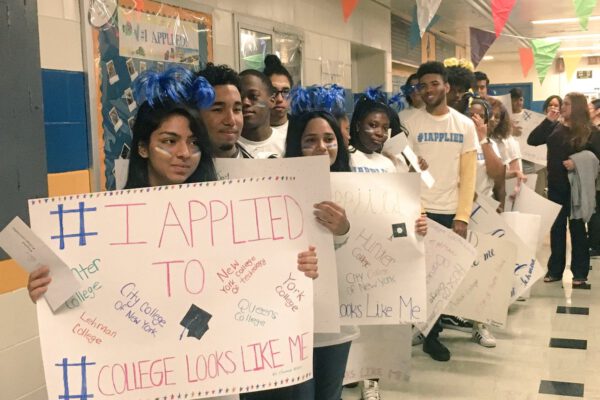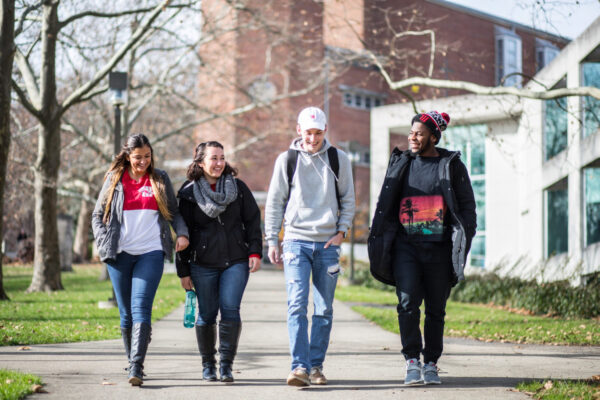By Kathleen McCartney
Last week marked one of the most moving moments of my higher education career. With the enthusiastic support of our board of trustees, Smith College announced the elimination of loans from our financial aid packages. Beginning in fall 2022, Smith will replace federal loans with institutional grants for all current and future undergraduates. As a first-generation college student, I could not be more proud.
Three reasons drove our decision to eliminate loans. We sought to recruit and enroll the best students, regardless of family resources; enable graduates to begin their careers or continue their studies with little or no debt; and help advance racial justice and equity, in light of the fact that Black and Latina/o students—at Smith and across the nation—graduate with disproportionate student debt.
In addition to eliminating loans, Smith will award one-time “start-up grants” of $1,000 to entering students with an expected family contribution of less than $7,000. The start-up grants will help students from families with fewer economic resources afford the everyday expenses associated with starting college.
And for seniors graduating in 2022 with need-based institutional grants, Smith will offer one-time “launch grants” of $2,000 to help with the cost of transitioning to life after college.
Collectively, these expansions in student support represent an investment of $7 million, bringing the total aid we will award next year to more than $90 million. Our ability to make these investments is a credit to the many donors and friends who have supported Smith, as well as prudent management of our finances, including our endowment.
Reducing college debt will be life-changing for students and families. Reaction to our announcement was immediate, underscoring the intensity of concerns around student debt. One alum wrote, “As a parent with a college student, I applaud Smith for
eliminating this practice. Education loans are not aid and it’s frustrating to see colleges continue to misrepresent financial aid this way. Makes me happy to support Smith however I can.” Another wrote of her struggles getting started in her career after college because of education debt, and the shame she felt in not being able to afford professional clothes. An alum who was a first-gen student wrote simply, “Thank you for shepherding the Smith family on the right side of history.”
Expanding education access and equity is a critical goal across the higher education sector—and a personal priority for me. I was fortunate to have an outstanding undergraduate experience, thanks to financial aid. When I went to college, I was supported by the generosity of those who came before me. They did not know me or my family or my life circumstances but they knew the power of education to change lives. I am cognizant every day that it could have been otherwise for me, as it remains for too many young people. There is much left to do to make higher education possible for all who seek it and to ensure that all students experience inclusion and belonging when they arrive on our campuses. This work will continue to be a central focus of my presidency—and the most rewarding part of my job.
If you have any questions or comments about this blog post, please contact us.


